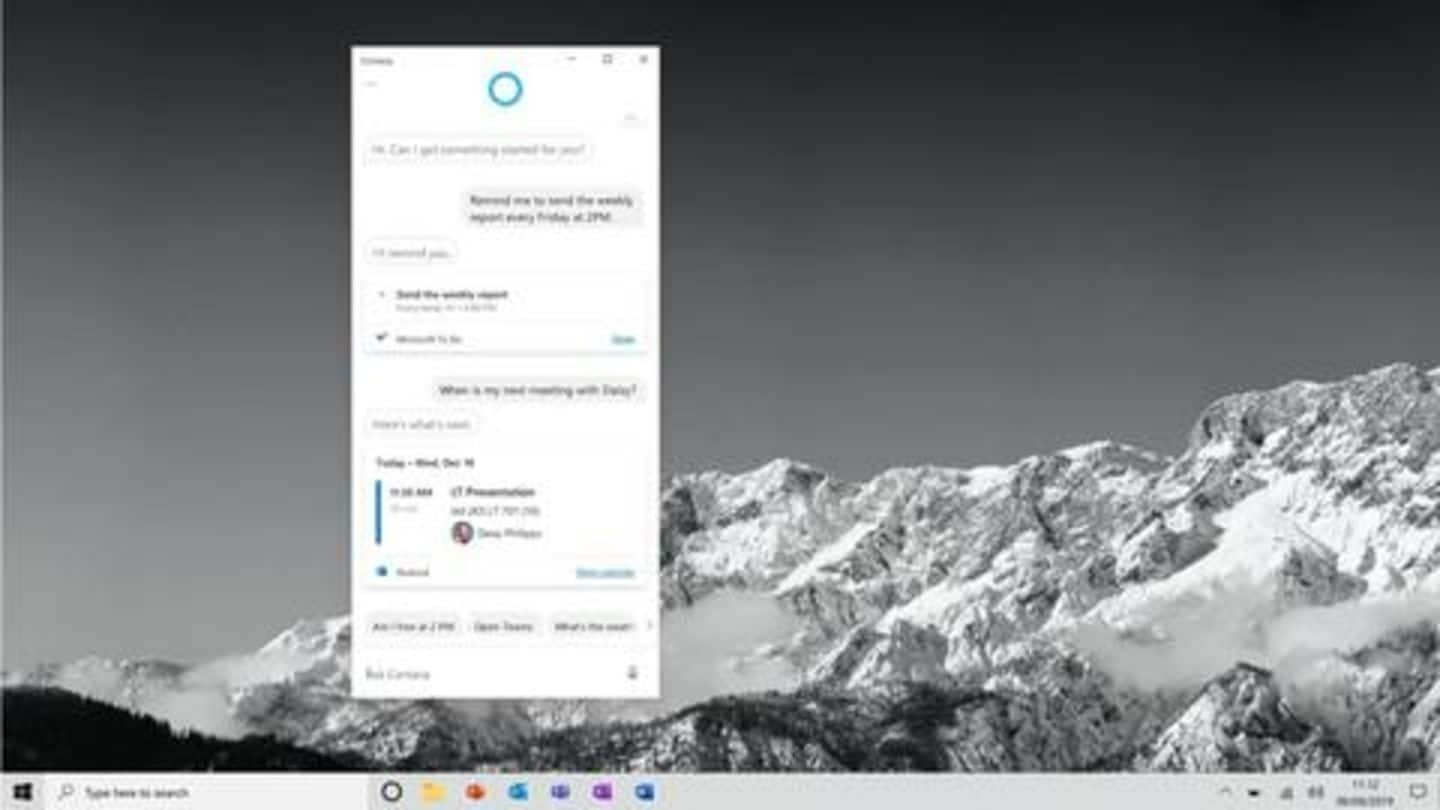
Cortana loses key skills as Microsoft focuses on 'personal productivity'
What's the story
Cortana, the Microsoft-built digital assistant that goes against the likes of Google Assistant and Amazon Alexa, is backing out of the match now. Well, it was never really a match, but the Redmond giant has announced that it will change Cortana, taking away its key consumer-facing skills. Instead, it says, the assistant will now focus on productivity features meant for business users. Here's more.
Plan
Microsoft's plan to change Cortana on Windows 10
In a recent blog post, Microsoft announced its decision to make productivity the focus of Cortana. As part of this, the company said, the assistant will lose some of its key consumer-facing features, like the ability to play music on command, control smart home devices, or use third-party skills. Plus, it will also be removed from the Microsoft launcher on Android next month.
Staying features
But, everything will not go away
While Cortana will lose some key capabilities, a number of things will continue to work as they do. For instance, even after the change, the digital assistant would still be detecting and responding to user calls; it would have the ability to converse and handle general queries or requests to control basic PC functions like alarms, timers, settings et al.
Focus
Productivity features will be upgraded
That said, moving ahead, the company will particularly focus on the productivity features of Cortana, like helping you send emails, better managing schedules for the day, setting reminders, finding people/files, and adding items into to-do lists. The goal, as the company clearly says, is to make Cortana a dedicated 'personal productivity assistant' for business and professional users rather than a generalized solution like Alexa.
Availability
New Cortana experience rolling out soon
The new Cortana experience will pack a revamped chat-like interface and debut with the next big update of Windows 10. However, it is worth noting that the productivity features would only be available for users in the US in the beginning. Those in other parts of the world will get search and conversational features first, with more capabilities debuting at a later stage.